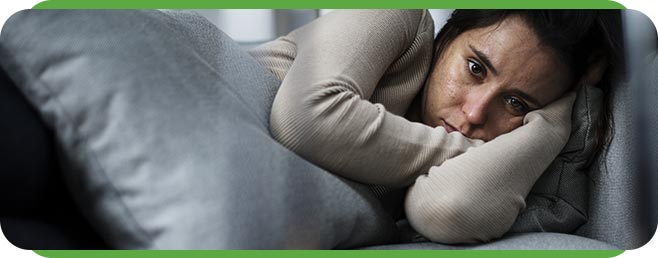What Are the Effects of Sleep Deprivation?
Sleep deprivation can have a significant impact on your life. Call our dedicated sleep team today at Koala® Center For Sleep & TMJ Disorders or visit us online to book an appointment. We have convenient locations across the U.S. in Bloomington IL, Peoria/Dunlap IL, El Paso TX, and Wausau WI.


Table of Contents:
What are some of the real effects of sleep deprivation?
What happens if you don’t get sleep for 2 days?
What tests are done if you are sleep deprived?
What doctor do you see for sleep deprivation?
In cases of chronic or long-term sleep deprivation, there are serious health risks involved that can impact our mental abilities and our physical health. Some of the most common effects of chronic sleep deprivation include memory issues, mood changes, trouble thinking and concentrating, high blood pressure, weakened immunity, a higher chance of accidents, risk of developing diabetes, weight gain, low sex drive, risk of heart disease and poor balance.
Sleep is important for the body to rest, heal and recharge. While we sleep, the body works to heal and repair itself, as well as restore its natural chemical balance. This is also when the brain works to forge together new thought connections and file away ideas and experiences into its memory bank. Lack of sleep prevents these things from happening, which can prevent the brain and body systems from functioning normally, which can lower your quality of life.
Sleep is important for our overall health and wellbeing and can have serious health consequences when we don’t get enough, both physically and mentally. When someone doesn’t sleep for 2 days, obviously they will feel incredibly tired, affecting their ability to focus, concentrate and think.
They will struggle to stay awake, which can increase their chances of getting into an accident or injuring themselves or others. On top of that, it will increase their chances of getting sick as their body doesn’t have the necessary downtime to fight off illnesses. They can also feel disoriented, forgetful, experience low sex drive, increase risk of heart problems and cancer, gain weight and negative affects on the appearance of their skin.
Your family doctor or primary care physician must be your first point of contact for any health concerns, especially when it comes to sleep deprivation. They will want to ask you a series of questions about your symptoms and your sleep patterns. Commonly, patients will be asked to keep a sleep diary that records the time they went to bed, the time they woke up, how many times they woke up and how they felt in the morning. There are also many tools available that can be used to track sleep and wakeful periods.
Upon review of this information, your doctor may determine that you are experiencing sleep deprivation or may want to send you to a specialist for further examination or to participate in a monitored sleep study. Many different factors can contribute to sleep deprivation, so figuring out the root cause will help in determining the right treatment plan. Ideally, getting the right amount of sleep every night will help to overcome sleep deprivation, however, that isn’t always possible as there may be medical conditions preventing a person from getting a good night’s sleep.
Your family doctor or primary care physician should be your first point of contact for any concerns about your health and wellbeing, including sleep deprivation. They may be able to diagnose your condition and provide you with treatment suggestions to get relief. Alternatively, they may want to send you to a sleep specialist for further investigation into the cause of your sleep issues. Depending on the root cause of your sleep deprivation, there are many types of doctors who can be consulted to help you get a good night’s sleep every night. For sleep issues related to respiratory issues, including obstructive sleep apnea, a pulmonologist may be recommended. Neurologists can also help with sleep apnea, as well as narcolepsy and insomnia, which are other common sleep disorders.
An ear, nose, and throat doctor (ENT) can help with issues related to a blockage in the throat, commonly associated with sleep apnea and snoring. When the sleep disorder is directly tied to mental health, like depression or anxiety, a mental health professional may be consulted by your doctor. At Koala® Center For Sleep Disorders, we have a highly qualified team who can help guide you on the right path for your sleep disorder. We take pride in ensuring our patients are getting the right treatment to help their sleep disorder.

Additional Services You May Need
▸ KoalaKIDZzz®
▸ Sleep Apnea
▸ Snoring
▸ TMJ Disorder
▸ Fatigue
▸ Sleep Disorders
▸ Weight Loss
▸ CPAP Alternative
▸ Oral Appliances




